Prisons in England and Wales 'need to improve rehabilitation rates'
- Published
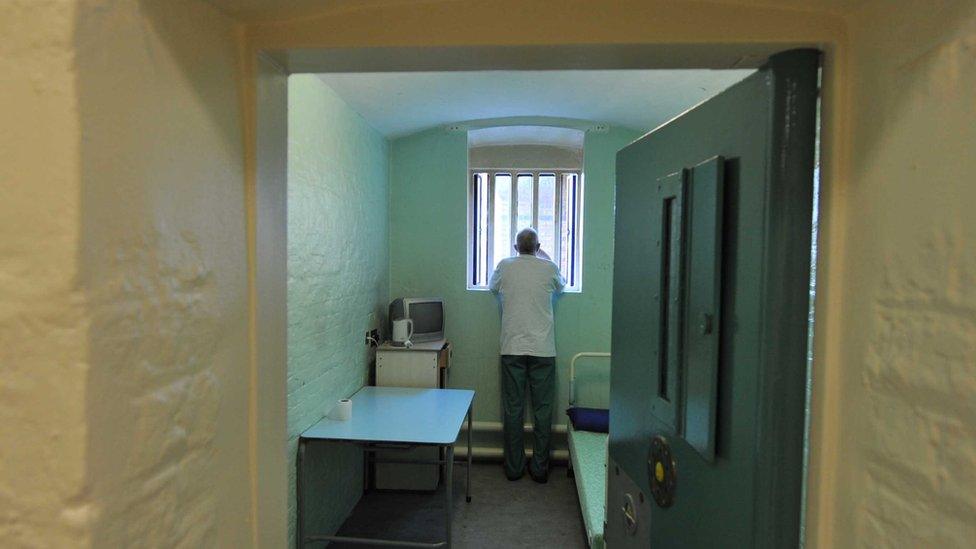
The Royal Society of Arts said there had been inconsistent leadership from politicians on prisons
The prison service in England and Wales is failing to protect the public because it is not rehabilitating offenders well enough, a report says.
The Royal Society of Arts, external said the service needed to be overhauled to reduce reoffending rates that cost the taxpayer billions of pounds.
It called for staffing to be increased and for prisons to have a legal duty to track rehabilitation rates.
The government said it was "committed to rehabilitating offenders".
'Undermined public confidence'
The RSA, a charity which aims to promote creativity in all aspects of life, spent a year researching how prisons can better support the rehabilitation of offenders.
It said inconsistent leadership from politicians had created a system that put the public at risk and did not reduce reoffending rates.
The report comes after the Prison Governors Association last week called for an independent public inquiry into prison standards following the "unprecedented" rise in violence and suicides in prisons.
Report author Rachel O'Brien, director of the RSA's Future Prison project, said: "The potential impact that prisons could have on reducing re-offending and community safety has been undermined by a lack of consistent political leadership and clear purpose.
"This has led to reactive policy, episodic change and an over-centralised system, which has disempowered the workforce and undermined public confidence."
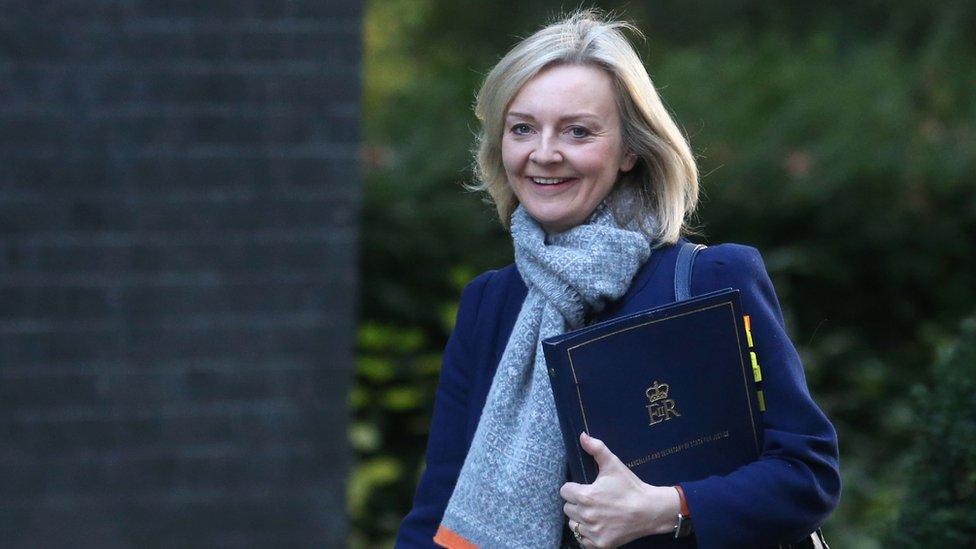
Justice Secretary Liz Truss is due to set out her plans for prison safety and reform in the coming weeks
There are currently just under 86,000 prisoners in England and Wales.
Figures show that from October 2013 to September 2014 around 496,000 adult and juvenile offenders were cautioned, received a non-custodial conviction at court or released from custody.
About one in four of these offenders committed a new offence within a year.
The RSA welcomed the government's commitment to prison reform and called for the Ministry of Justice to compile a national rehabilitation strategy running to 2020.
It also suggested including a rehabilitation requirement for prisons and probation, which would be a legal duty and require services to track individual and institutional progress, as well as a return to frontline staffing levels seen in 2010.
It also said the National Offender Management Service, which is responsible for correctional services in England and Wales, should have a smaller, "arms-length" function and called for the creation of local prison boards to oversee long-term strategies.
Last year, former justice secretary Michael Gove described the failure to reduce re-offending rates as "horrifying".
Mr Gove's successor Liz Truss is due to set out her plans for prison safety and reform in the coming weeks.
A Ministry of Justice spokeswoman said: "We are committed to rehabilitating offenders to reduce re-offending and create fewer victims.
"We will set out full details of our plan for prison safety and reform in a White Paper in the coming weeks and are carrying out a comprehensive review of the probation system to improve outcomes for offenders and communities."
- Published12 October 2016
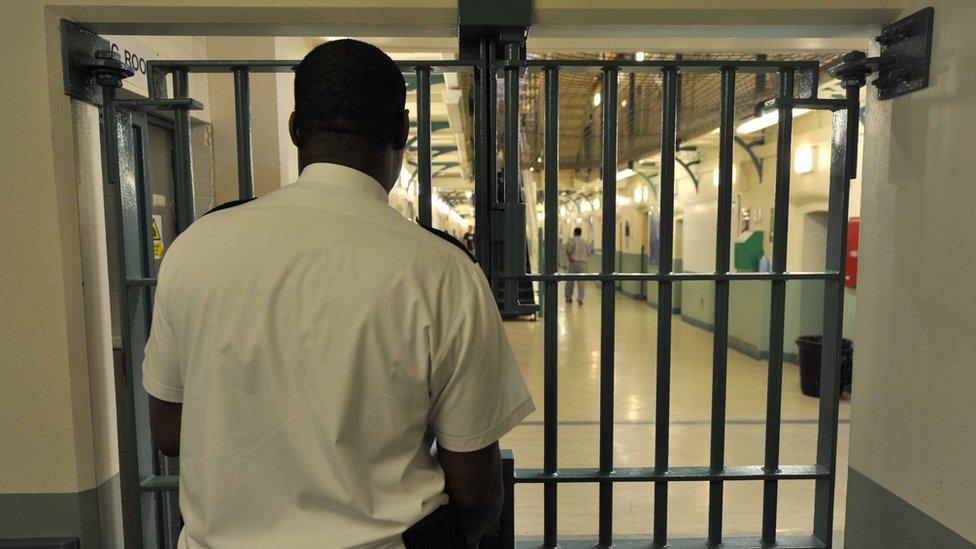
- Published19 July 2016
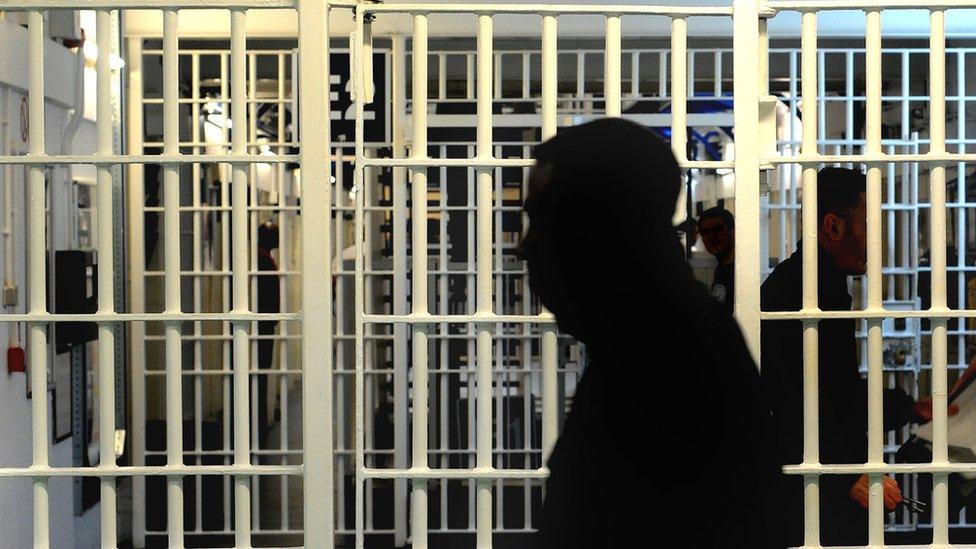
- Published7 November 2016
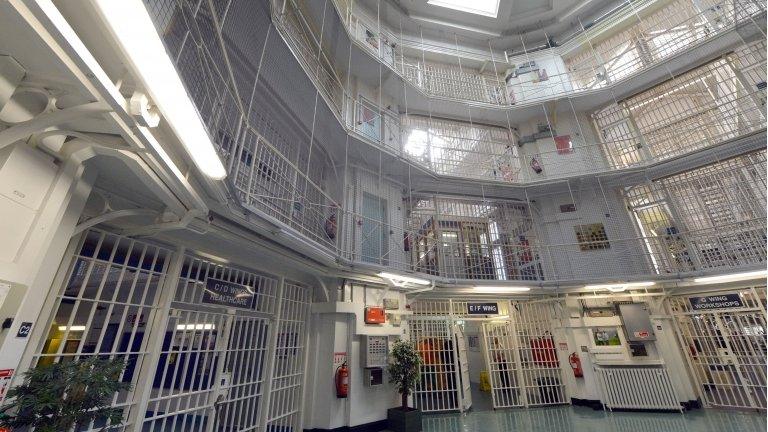
- Published22 August 2016
